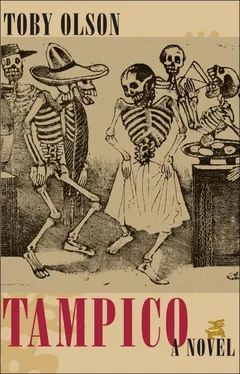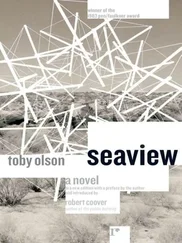There was a smell under the smell of Florida flowers at the Key West. Charlie was playing “Nancy,” whispering too bad for you , and the flowers were rustling in their wicker in the warm air of the heating system, forming a garish Mardi Gras hat for the man who sat before them, his face wasted and skeletal, lips lifted to salmon-colored gums as he mouthed the words. I saw his cane handle at the piano’s bar rail, the profile of the man beside him. The smell of subtle cologne? There were others at the Steinway’s edge now, men and a few women, and drifts of laughter and talking coming from the bar and tables behind us as the Key West was filling. It was something under the perfume, a medicinal smell guarding something deeper, a faint scent of rotting. I turned to Carlos — he was singing along, she has no sister —then caught it near my shoulder, the smell of dried sweat under my shirt collar, faintly rancid, unhealthy as the start of invisible mold on turning cheese. I glanced from Carlos to the young man with the skull face, and he grinned at me and nodded as if we shared some secret.
Then it was “Laura,” footsteps in the misty gloom or something like that. I was watching Charlie and the way his head came up into the refrain, the bright look of his dead daughter in his blue eyes, that woman I had thought to love, whose death had sent me into the Combat Zone, to drugs and alcohol and HIV. I heard a weak cough, saw the man lean his face into the handkerchief, wisps of thinning hair and the hand of the other on his shaking shoulder bending in to tend him, only a dream , and Charlie was turning from that tune, a house, a showplace , bending into no place , coming to the set’s end. “I Can’t Get Started,” he said, sang with you , then led us all carefully through a few verses, and there were laughter and applause at the final punctuation, and a woman leaned forward on her stool and slid a five-dollar bill into the big brandy snifter on the Steinway’s wood above the keys.
We sat at a table in the corner, back behind the flowers and away from noise. Men were dancing now, slow tunes on the stereo, and waiters in tight black T-shirts slipped among them, carrying trays of drinks. Carlos sat beside me, Charlie on the other side. “Carlitos,” he’d said, when they were introduced, and Carlos had said “same name.”
“Friday night. Sad winter tunes and nostalgia.”
“Is that it?” I said, wiping the sweat away with a paper napkin.
“Are you all right?” Charlie said.
“Yeah,” I said. “It’s hot in here.”
“Or the difference,” Carlos said. “Between outside and in.”
“It’s been an incredible winter,” Charlie said. “The storms and ice. I’ve only one more set to go, but I’ll hang around. Friday’s slow dancing. I do the weeknights late. There’s show tunes on Thursdays. Tonight was standards.”
“I got that,” Carlos said.
We were taking our time and we both knew that, little bits of information sliding in. Charlie had been in the city for a year now, moving from job to job. He’d been at the Key West for six months. It was a good place, quiet enough, and some were serious about the music. I told him I’d checked the cemetery. They were tending her grave. He was living alone, between things, but maybe, he said, there is this man. He grinned at me, then glanced at Carlos in curiosity.
“You know better than that,” I said, and he laughed, and I told him about Carlos and Gordon Strickland.
“That’s what got us together.”
“Do you think so?” Carlos said.
“No,” I said, and the three of us laughed, then sipped our drinks, and I lifted mine to cool my brow with ice.
“Strickland,” Charlie said. “There really wasn’t much to know. I mean, of intrigue. He seemed wide open, very public and active. You could even say he was beloved. His death was quite a blow here. He’d started free clinics, even hospices. As to his lovers, I don’t know. I think we could find out though, if there’s anything there.”
“What about those lists?” I said.
“Well, yeah, that’s it. They were doing an inventory, both at the Cape house and this one. He’d left it all, you know, for the AIDS work, hospices and such. There was no family. They thought they probably had it all. Then they found the lists and saw there was stuff missing. Possibly valuable, but that part’s only rumor.”
“He could have sold it,” I said.
“That’s true, of course, but not likely. He kept very good records. You mentioned the plane was clear?”
“Seems so. According to the FAA at least.”
“You said we could find out,” Carlos said.
“You mean about his personal life? We can sure try.”
Charlie got up from the table then and went around the wicker, and once he was out of sight I turned to Carlos.
“It’s stuffy in here,” I said. “Too much heat.”
I saw him looking at my brow.
“You’re sweating,” he said. “Are you all right?”
I started to answer, then saw Charlie’s bulky figure moving slowly past the flowers once again, the skeletal man I’d seen at the bar beside him, leaning on his cane, his feet in slippers.
He shuffled toward the table, his friend slightly behind him, watching him, and I fought an urge to rise as for a woman, then saw Carlos rise at my elbow and move around the table and pull a chair out. Then I was on my feet too, my arms awkward at my sides. I’d risen too quickly and felt dizzy, and I touched the table with my fingers to steady myself.
The two young men looked nothing alike, though they were both tall and thin. The one guarding the other, sitting back from the table just a little near his shoulder, had thin blond hair and a mustache and his arms were tan, under a lamp I thought, his wrists thick, and there were calluses on his fingers. The other one had a dark complexion, but his face was pale. He was clean-shaven, and I saw an ashen hue in his hollow cheeks, a light dusting under his chin. When his arms moved, his fingers curling round his glass, I could see the bones in his forearms working. He had a large nose, thin and parchmentlike, and when I looked to the other I saw something similar and realized that the nose didn’t shrink, but grew prominent in contrast, as if a last aggressive statement of personality, ironic in what it presaged, the skin falling back behind it, until the skull came through into the common face. The darker one had arrived somewhere and was beyond bewilderment, but the other was still moving in his potential and I could see that in his eyes, the way they turned in their bone chambers, healthy and alert and a little desperate in being trapped there. The eyes of the darker one were milky, but focused in the resignation of his body, just waiting, and I saw them in my own eyes then, then glancing to my nose. We have all the time in the world, they seemed to say. Then he lowered the glass and cleared his throat.
“Gordon was a saint,” he said.
“You knew him that well?” Carlos said, and the blond one laughed, then reached to the other’s shoulder, kneading it. His name was Andy and his friend was James.
“He’s prone to exaggeration,” Andy said.
“I am not,” said James. “Well, maybe just a little.”
“You can talk,” Charlie said. “It’s okay.”
“It’s about his private life,” I said. “We’re looking into his death.”
James was looking at me, wondering, I thought. I hadn’t told Charlie about the HIV and didn’t plan to yet. Then James spoke.
“I can’t tell you specifics. Gordon was a private man, though public about his AIDS. It was political for him, and he was respected. There wasn’t much gossip, something about his place near Provincetown as I remember, maybe a man there? And there was talk about Boston too, though it was vague. But I know someone who can tell you, if anyone can.”
Читать дальше












